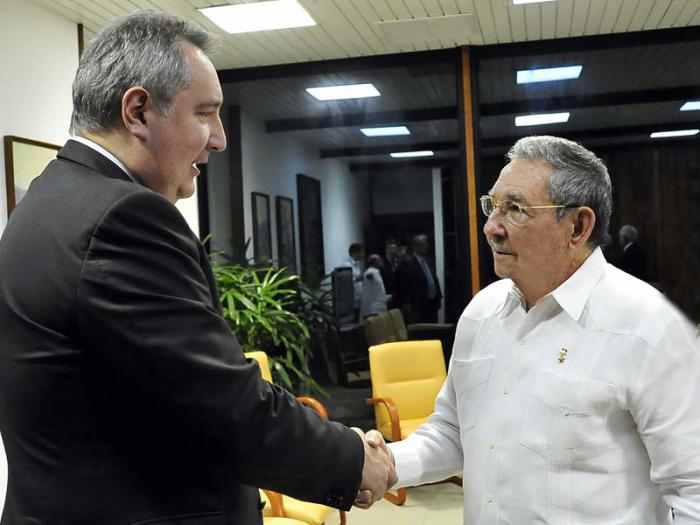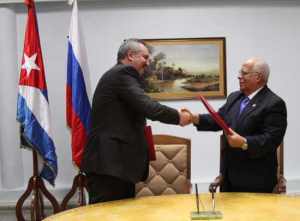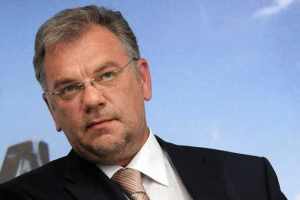
Russian official praises U.S. move but urges caution
Washington may be moving closer to Havana, but Moscow is not moving away, to judge by the presence in the Cuban capital last week of Russia’s deputy Prime Minister Dmitri Olegovich Rogozin and a delegation of Russian businessmen and functionaries.
Rogozin was in Cuba to attend the 12th meeting of the Intergovernmental Commission for Economic, Commercial, Scientific and Technical Cooperation, but it seemed clear from the timing of his arrival — less than two days after President Obama’s statement of rapprochement with Cuba — that he wanted to exchange assurances of continued cooperation with President Raúl Castro.

“Being next to the Cubans is the best answer to their present and future challenges,” Rogozin said last Friday (Dec. 19), quoted by the Cuban news agency Prensa Latina. He expressed satisfaction at President Obama’s announcement, saying that “we have always believed that, sooner or later, the blockade against Cuba will crumble. Well, it’s collapsing.”
Nevertheless, he cautioned, “the Cuban side is not going to compromise its principles, meaning that it will not weaken its position in exchange for promises that are part of a verbal dialogue initiated by Washington.”
“Of course, we do not trust those words from Washington,” Rogozin went on, quoted by the Russian news agency Novosti. “We do not see in the American eagle a peace dove. Probably, the U.S. simply decided to change tactics and now drowns with embraces instead of simply drowning. We shall see.”
Rogozin and his retinue met with Ricardo Cabrisas, vice president of the Council of Ministers, who said that “bilateral relations are at a qualitative superior moment.” Joint projects are ongoing on energy, steel production, health care, pharmaceuticals, technology and tourism, Cabrisas said.

(Accompanying Rogozin was Dmitri Shugayev, the deputy director of Rostec, one of Russia’s largest industrial corporations.)
Cabrisas allowed that commercial exchanges “have shown a declining trend,” but the latest talks “should reverse that situation.” Russian and Cuban entrepreneurs should identify common interests, joint ventures, and ways to guarantee financial support for commercial operations, he said.
Cabrisas encouraged his Russian interlocutors to consider participating in the exploration and exploitation of natural resources (basically crude oil and minerals), renewable energy, tourism, computer systems and communications, agriculture and packaging.
He reminded Rogozin that Cuba is rigorously meeting its obligations with regard to the credit lines granted by Moscow and added that “that will continue as part of the policy of the [Cuban] authorities.”
At the end of the meeting, both parties signed protocols of cooperation in the fields of science, technology and innovation, as well as an action plan for the 2015 meeting of the Committee of Russian and Cuban Industrialists.
Also, they signed a contract for the sale of railroad equipment by the Russian company Evraz to the Cuban transport company Tradex. Evraz is Russia’s biggest steel producer and one of the world’s top 20 steel producers.
When asked about the possibility that Cuba might use its credit line to upgrade its military resources, Rogozin — who is Russia’s Deputy Prime Minister for Defense — answered that “we support the needs of the armed forces of Cuba however we can, but the real focus of today’s meeting was other, more peaceful issues, civilian issues.”
Russia assists its allies and partners with military-technical advice, he said, but now the emphasis is socioeconomic development.
“If Cuba feels economically comfortable” in the future, he said, “there will be other financial opportunities to upgrade its weapons and equipment.”
During his visit, Rogozin met with President Raúl Castro. The daily Granma released no details of their 90-minute conversation, other than “they dialogued on the excellent state of the bilateral relations and the need to continue to strengthen them, mainly in the economic and commercial sphere.”


